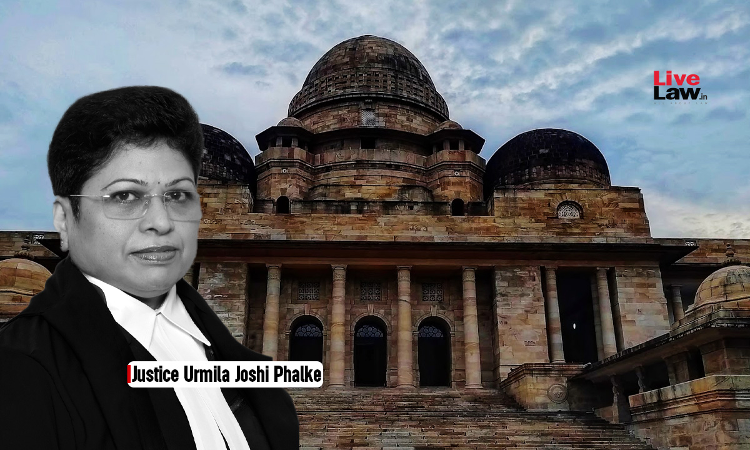- Home
- /
- High Courts
- /
- Bombay High Court
- /
- Concurrent Proceedings Under MCOCA...
Concurrent Proceedings Under MCOCA Not Sufficient Explanation For Delay In Trial Under SC/ST Act: Bombay High Court Grants Bail
Saksham Vaishya
16 Aug 2025 3:20 PM IST
The Bombay High Court (Nagpur Bench) has held that pendency of a trial under the Maharashtra Control of Organised Crime Act, 1999 (MCOC Act) is not, by itself, a sufficient reason to keep another trial in abeyance, and prolonged custody without progress in trial amounts to a violation of the right to a speedy trial under Article 21 of the Constitution.A bench of Justice Urmila Joshi-Phalke...
The Bombay High Court (Nagpur Bench) has held that pendency of a trial under the Maharashtra Control of Organised Crime Act, 1999 (MCOC Act) is not, by itself, a sufficient reason to keep another trial in abeyance, and prolonged custody without progress in trial amounts to a violation of the right to a speedy trial under Article 21 of the Constitution.
A bench of Justice Urmila Joshi-Phalke was hearing a criminal appeal challenging the Gondia Sessions Court's order refusing bail to Zulferkar @ Chotu, accused of murder and other offences under the IPC, Arms Act, SC/ST (Prevention of Atrocities) Act, and Bombay Police Act, in a case registered in 2012. The appellant, in custody since September 2020 following cancellation of his earlier bail for breach of conditions, sought release on the ground that not a single witness had been examined in nearly five years of incarceration.
The prosecution opposed bail, citing the appellant's abscondence, his alleged direct role in the murder, and the pendency of another MCOC trial against him, which, under Section 10 of the MCOC Act, was given precedence and allegedly caused the delay.
The Court noted that there is no dispute as far as the legal position is concerned that Article 21 enshrines the right of the present appellant to a speedy trial, and if it is violated, he is to be released on bail, irrespective of the nature of the crime.
The Court observed that Section 10 of the MCOC Act, like pari materia provisions in the Uttar Pradesh Gangsters Act, was intended to give priority to MCOC trials to avoid date clashes, not to indefinitely halt other trials. It held that the provision applies only once the MCOC trial has commenced, and cannot justify keeping the present case in abeyance when no such necessity exists. It said:
“… it is not the proceedings in a matter which has preference or precedence, but it is the trial of the offence of the MCOC by the Special Court which will have precedence. It is thus apparent that Section 10 would come into play and be operative only in the event of the trial of an offence under the MCOC having commenced. If the trial has not yet commenced, there would be no question of Section 10 coming into play.”
The Court interpreted 'kept in abeyance' to mean that if dates in both cases are common, the case under the MCOC Act will get precedence. It held that the trial under the MCOC Act is not a sufficient reason for delay:
“… the trial under the MCOC Act is already at the fag end, and it is for submitting the case laws, and therefore, there is no reason for the trial to keep this case in abeyance.”
Finding that the appellant had been in custody since 09 September 2020 with no trial progress and that his fundamental right to a speedy trial was violated, the Court set aside the order refusing bail and directed his release on a personal bond of ₹50,000 with strict conditions.
Case Title: Zulferkar v. State of Maharashtra & Anr. [CRIMINAL APPEAL NO. 315 OF 2025]



